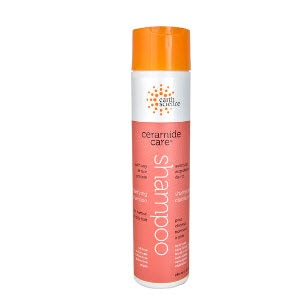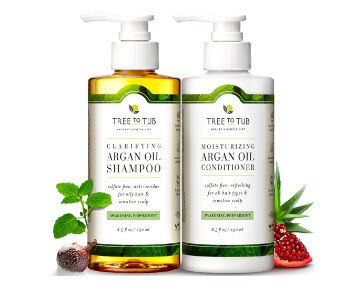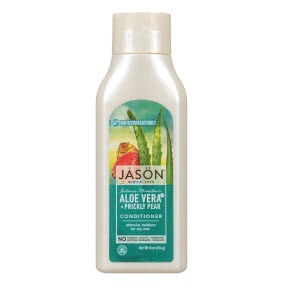Hair type and texture can vary based on the individual, with some people being more prone to developing oily hair and scalp conditions than others. Slick and greasy hair isn’t appealing, and if yours produces oil quickly, it’s a good idea to consider what causes oily hair exactly as well as how to properly care for hair and scalp regularly in order to prevent and reduce oil buildup.
Certain types of products are particularly effective for treating and managing oily hair, and being mindful of hygiene habits, including how often you wash your hair in the week, can help, too. If your hair gets oily, don’t fret—here’s everything to know about oily hair and what to do about it.
Causes of oily hair
There are a few reasons why hair gets greasy, even shortly after washing it.
“Oily hair may be related to genetics in that certain people may produce more oil,” explains board-certified dermatologist, Marisa Garshick, MD, FAAD.
If genetics are a factor, make sure you’re handling hair appropriately to minimize oil as best as possible and treating the scalp often enough. And, hormonal fluctuations or changes increase oiliness, especially during puberty or menopause.
An overactive sebaceous gland is a cause, too.
“Hair gets greasy due to overactive sebaceous glands, which are microscopic exocrine glands in the skin that secrete an oily or waxy matter, commonly called sebum,” says celebrity hair stylist and current Creative Education Director for Scruples, William Whatley.
It’s how the body lubricates and waterproofs skin and hair (a good thing), but an overactive gland can be problematic.
“In some cases certain products may also contribute to a more oily scalp or more oily hair,” Garshick says.
Products with heavy amounts of oil exacerbate greasiness. Scalp health makes a difference, too.
“Oily scalp can result from not washing hair enough, which is why not washing the hair can actually make it worse,” Garshick says.
“Oily scalp and hair can be associated with the condition called seborrheic dermatitis, which may result in red, greasy, scaly plaques on the scalp that may be itchy,” Garshick notes.
Lastly, environmental factors like humidity and water temperature when showering can cause hair to be oily. Wash hair often, especially on hot and humid days, and keep water lukewarm, rather than scorching hot, in the shower.
How to care for oily hair
Shampooing helps get rid of excess oil, flaking and debris from hair products. Shampoos that contain salicylic acid help reduce oil and buildup. Use salicylic acid shampoo only a few times per week, alternating with another shampoo without salicylic acid.
“A good option for someone with an oily scalp and significant buildup or flaking contains 3% salicylic acid to reduce flaking and oil,” Garshick says.
It’s effective for treating itching and dryness, and is especially helpful for people with conditions including, seborrheic dermatitis, psoriasis and dandruff.
Clarifying shampoos are helpful for people with oily hair and scalp as they get rid of oil to keep it from building up. Clarifying shampoos have ingredients specifically designed to lift away excess oil and residue, and the surfactants in clarifying shampoo are more effective, thus providing a deeper clean, in comparison to regular shampoo. Use a good conditioner, too.
“Review your conditioner carefully as conditioners can make the hair look greasier and cause oils to pile up faster,” suggests Whatley.
Apply a light conditioner, mid-strands to ends, skipping the roots.
Apple cider vinegar can also benefit hair.
“An apple cider vinegar rinse can help remove product buildup, balance scalp pH and reduce frizz and it really makes the hair shiny,” Whatley explains.
Since it’s acidic, it has a very low pH.
“This helps close the cuticle down after using and cleanses the scalp from oils,” Whatley says.
And, keep dry shampoo handy for a quick fix. It can’t substitute a shampoo wash, but can help dry out oils and give hair a cleaner appearance.
Best products for oily hair
The best products for oily hair and scalp include clarifying shampoos with a concentration of salicylic acid as well as products containing witch hazel, apple cider vinegar, tea tree or aloe. Clarifying shampoo works to remove excess oil and product buildup, and it’s a good idea to look for one that’s safe for color-treated hair and offers moisturizing ingredients to repair damage and prevent dryness.
“Witch hazel is an amazing natural ingredient that can relieve itching, close oil producing pores and reduce inflammation caused by dandruff, pH imbalance, or other scalp disorders,” Whatley says.
And, it’s gentle enough to use on a sensitive scalp. Clarifying shampoos and conditioners often include witch hazel for its hair and scalp care benefits. Tea tree oil is antibacterial, meaning it improves dandruff and greasiness, and reduces itchiness. Tea tree shampoo and conditioner can be very helpful for oily-prone hair. You can also look for hair products with aloe.
“Aloe makes for a great hair and scalp mask, as it removes extra oil, fights product buildup, soothes the scalp and protects strands,” Whatley says.
It promotes soft, healthy hair and can be found in clarifying shampoo formulated for sensitive scalps, and more. As for dry shampoo, use one that’s specifically designed for oily hair, with ingredients like rice starch and kaolin clay, as they absorb oil and don’t leave a residue.




